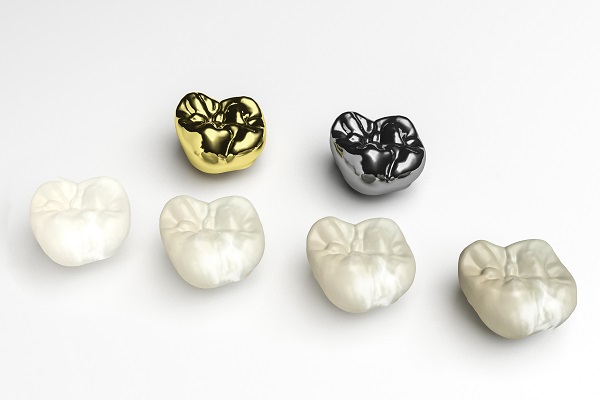Dental Crowns to Protect Your Tooth

If you've been told you need dental crowns or want to know more about them, here's an explanation of what they are and how they're used to protect your tooth from damage caused by decay, injury, or other factors. The following article provides some information about the materials used to make crowns and their benefits over different types of dental restorations.
What are dental crowns?
A crown is a covering that surrounds and protects a damaged tooth. Crowns can be made of porcelain, gold, or other material (depending on your needs) and are bonded onto your tooth. In addition to being highly effective at protecting your teeth from further damage, it also strengthens weakened teeth.
How do they protect your tooth?
Crowns protect teeth by covering and strengthening weak, damaged, or injured teeth. A crown is a custom-made cap that fits over your tooth, helping prevent further deterioration. It's like a protective hat for your tooth!
What material is used to make them?
Crowns are made from porcelain and metal alloys such as zirconia, gold, and silver. These metals are usually covered in resin and shaped into place by taking an impression of your natural teeth and sending it off for processing with dentists' equipment that uses pressurized air technology.
Porcelain and metal alloys used in dental crowns are usually covered in resin colored with pigments. The color can range from natural tooth colors like white and pink to blue or black.
What are the benefits?
Crowns allow you to keep your natural teeth for as long as possible. Crowns can cover any part of a tooth, from just the root and top to an entire chewing surface. In addition, some crowns are strong enough to be used in place of several natural teeth. The biggest benefit of a crown is that they are strong enough to last many years and protect your natural teeth from additional decay or trauma. Plus, they look just like your natural teeth!
Will I need more than one visit to get my crown?
Depending on your situation and the materials used, more than one visit may be necessary. The first one is an impression appointment where your dentist will take a mold of your mouth and teeth so that they can create your new crown later. If you go with a traditional dental lab route, it could take multiple weeks for your permanent crown to be finished before you come back for a second appointment. Your dentist will file down any rough edges and fit them into place permanently.
Contact your dentist
Consult your dentist before your procedure to know what materials are used and the expected timeline. Both factors will affect the price you'll be paying. Be prepared to ask questions to ensure that you have a clear understanding of the treatment plan moving forward.
Request an appointment here: https://www.cottrellsmilesva.com or call Richard Cottrell, DDS & Associates at (540) 808-1303 for an appointment in our King George office.
Check out what others are saying about our dental services on Yelp: Dental Crowns and Dental Bridges in King George, VA.
Recent Posts
It is important to repair a chipped tooth promptly to prevent the issue from worsening or symptoms of the chipped tooth from lingering for longer than what is necessary. When seeking prompt care for a chipped tooth, the treatment is often less invasive and more affordable for the patient as well.When visiting a dentist for…
There are various reasons why a dental bridge might be recommended. A dentist might advise you to get one if you have multiple missing teeth next to each other (typically no more than three) and your budget is not enough to cover implants.A dental bridge might also be recommended if a dentist deems you are…
People opt for dermal fillers from a dentist for different purposes. Professional dentists have the skills and expertise to remarkably transform the appearance of the smile and the general aesthetics of the teeth. They are also trained in changing facial looks with the same aesthetic skills and meticulousness required for creating appealing smiles.With rejuvenation procedures…
If you have recently gotten braces from the family dentist, you will probably be aware of the hassles of cleaning them. The braces’ brackets are bonded to the tooth’s surface, limiting the reach of the toothbrush and making it harder to clean the teeth thoroughly. Nevertheless, you still need to keep the braces as it…


